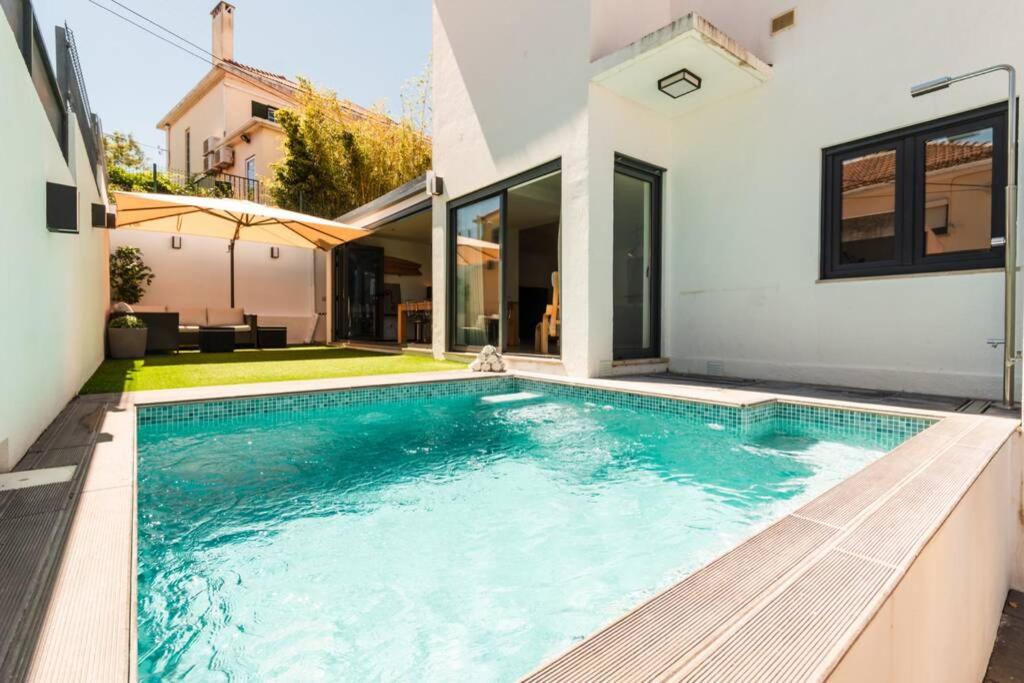As a homeowner, a noisy pool pump can be a source of annoyance and concern. Not only does the loud noise disrupt the tranquility of your home, but it can also indicate underlying issues that may require attention. Why is my pool pump so loud? This question is commonly asked by many pool owners who want to maintain a peaceful and efficient backyard oasis. In this article, we will explore the common reasons behind a loud pool pump and provide practical solutions to help you restore peace and quiet to your outdoor space.

Understanding Pool Pump Noise
A pool pump is an essential component of your pool’s filtration system. Its primary function is to circulate water, allowing it to pass through the filter and be cleaned of debris and impurities. While some noise is expected from a pool pump due to the mechanical nature of its operation, excessive noise can indicate problems that need to be addressed.

Common Causes of a Noisy Pool Pump
1. Air Leaks
One of the most common reasons for a loud pool pump is air leaks. When air gets into the system, it can cause the pump to produce a loud, bubbling noise. This can occur if there are cracks or gaps in the pump housing or if the pump’s seals are worn or damaged.
2. Cavitation
Cavitation occurs when air bubbles form in the pump’s impeller and then collapse, creating a loud, popping sound. This can happen if the water level in your pool is too low or if there are obstructions in the pump’s suction line.
3. Worn Bearings
Over time, the bearings in your pool pump’s motor can wear out, leading to increased noise. If you hear a grinding or screeching sound coming from the pump, it’s likely that the bearings need to be replaced.
4. Loose Parts
Loose or vibrating parts within the pump can also contribute to excessive noise. This can include anything from loose bolts and screws to a misaligned impeller or motor mount.
5. Motor Issues
A failing or malfunctioning motor can be another cause of a noisy pool pump. If the motor is struggling to run or is making unusual noises such as buzzing or humming, it may need to be repaired or replaced.

Solutions for Reducing Pool Pump Noise
1. Inspect for Air Leaks
To address air leaks, thoroughly inspect the pump housing, seals, and connections for any signs of damage or wear. Replace any damaged parts and ensure all connections are tight and secure.
2. Check Water Levels
Make sure your pool’s water level is adequate to prevent cavitation. Additionally, check for any obstructions in the suction line that could be impeding water flow.
3. Replace Worn Bearings
If you suspect that the pump’s bearings are worn, it’s important to have them replaced by a professional. New bearings can significantly reduce noise and improve the pump’s performance.
4. Tighten Loose Parts
Periodically check for and tighten any loose bolts, screws, or other components within the pump. Ensure that the impeller and motor mount are properly aligned to prevent vibrations.
5. Address Motor Issues
If the motor is the source of the noise, consult with a pool maintenance expert to diagnose the problem. In some cases, the motor may need minor repairs, while in others, a full replacement may be necessary.
Preventive Maintenance for a Quieter Pool Pump
Regular preventive maintenance can help keep your pool pump operating quietly and efficiently. Here are some key maintenance tasks to consider:
1. Clean the Pool Regularly
Keeping your pool clean and free of debris can reduce strain on the pump and minimize noise. Skim the surface of the water, vacuum the pool floor, and clean the filter according to the manufacturer’s recommendations.
2. Lubricate Moving Parts
Lubricate the pump’s moving parts, including the motor bearings, to reduce friction and noise. Be sure to use lubricants recommended by the pump manufacturer.
3. Monitor Water Chemistry
Maintaining balanced water chemistry can prevent scale buildup and corrosion, which can affect the pump’s performance and contribute to noise. Test the water regularly and adjust the chemical levels as needed.
4. Schedule Professional Inspections
Having your pool pump inspected by a professional at least once a year can identify potential problems early and prevent them from escalating. A professional can also perform any necessary maintenance tasks to keep the pump running smoothly.
When to Call a Professional
While many pool pump issues can be addressed with DIY solutions, there are times when it’s best to seek the assistance of a professional. Consider calling a pool maintenance expert if:
- The pump continues to make loud noises despite your efforts to address the problem.
- You are unsure how to diagnose or fix the issue.
- The pump is old and may need to be replaced.
- You lack the tools or expertise to perform repairs safely.
Remember, a professional can provide a thorough assessment of your pool pump and recommend the best course of action to resolve the noise issue.
The Importance of a Quiet Pool Pump
A quiet pool pump not only enhances the enjoyment of your outdoor space but also indicates that the pump is functioning properly and efficiently. Addressing noise issues promptly can prevent further damage to the pump and extend its lifespan. Additionally, a well-maintained pool pump can contribute to lower energy costs and better water quality.
How to Choose a Quiet Pool Pump
If you decide that it’s time to replace your pool pump, consider choosing a model known for its quiet operation. Here are some features to look for:
1. Variable Speed Pumps
Variable speed pumps are designed to operate at different speeds, allowing you to adjust the flow rate based on your pool’s needs. These pumps are typically quieter than single-speed pumps and offer energy-saving benefits.
2. Energy-Efficient Models
Energy-efficient pool pumps often feature advanced motor technology that reduces noise and vibrations. Look for pumps with high energy efficiency ratings to ensure both quiet operation and cost savings.
3. Sound-Dampening Features
Some pool pumps come with built-in sound-dampening features, such as insulated housings and vibration-absorbing mounts. These features can significantly reduce noise levels and enhance the overall user experience.
Conclusion
A noisy pool pump can be a frustrating issue for homeowners, but with the right knowledge and solutions, you can restore peace and tranquility to your outdoor space. By understanding the common causes of pool pump noise and implementing preventive maintenance practices, you can keep your pool pump running quietly and efficiently.
For more information on pool maintenance and repair, visit how-home-repairs-improve-quality-of-life, the-role-of-nonprofit-organizations-in-housing, and we-all-bring-loads-of-pool-design.
For further insights on how a swimming pool can enhance your home’s value, check out this helpful article.
Frequently Asked Questions
1. What are the signs of a failing pool pump motor?
Common signs include unusual noises (buzzing, humming, or grinding), a noticeable decrease in water flow, and frequent tripping of the circuit breaker. If you notice any of these signs, it’s best to consult with a professional for further diagnosis.
2. Can a noisy pool pump affect my energy bills?
Yes, a noisy pool pump may indicate underlying issues that could make the pump less efficient, leading to increased energy consumption and higher utility bills over time.
3. How often should I perform maintenance on my pool pump?
Regular maintenance should be performed at least once a year. However, it’s a good idea to monitor your pump more frequently for any unusual noises, leaks, or other signs of wear and tear.
As an Amazon Associate, I earn from qualifying purchases.

